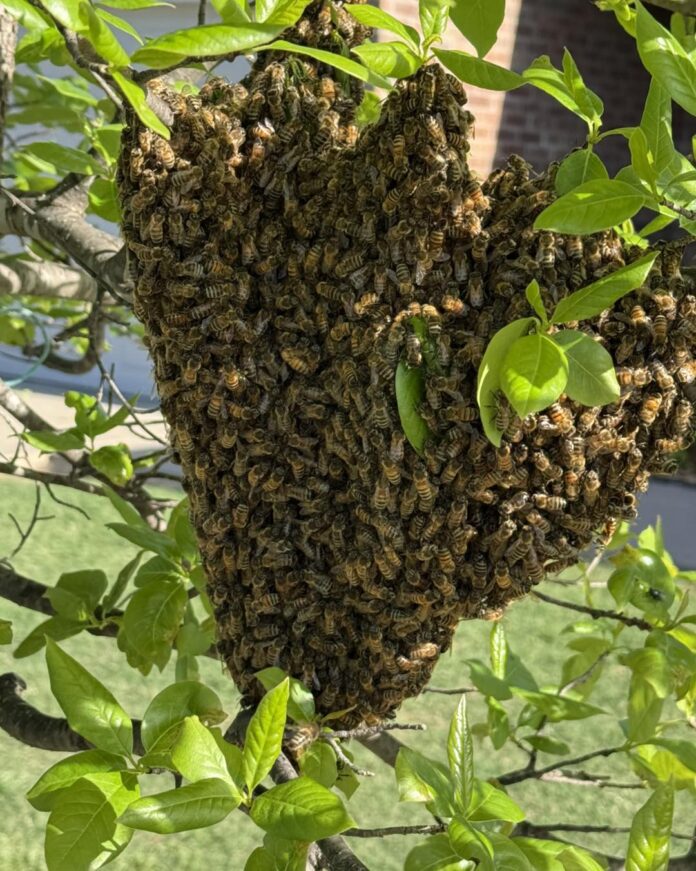The summer heat is hitting its stride in Oklahoma, and with that comes an influx of insect activity. One of the state’s most prominent bugs? Bees. While these winged creatures can be a nuisance at times, they deserve to be treated with respect.
So, if you walk into your backyard and see a giant colony has made a new home on your deck, grill or house, what can you do?
“Don’t panic. They are likely not aggressive if you don’t mess with them,” says James Deming, owner and beekeeper at Shadow Mountain Honey Company based in Tulsa. “Give them some space and call a beekeeper right away. We partner with the Northeast Oklahoma Beekeepers Association, so we have access to dozens of available beekeepers to assist.”
A major ‘don’t’ when it comes to dealing with bees is spraying them with water or pesticide.
“Water will only agitate them and increase your chances of getting stung,” says Deming. “Pesticides will kill the bees, but if they have an actual hive inside of something like your wall, the bees will begin to rot and smell – just like a dead wild animal.”
He continues: “In addition, if there is honey inside the wall and it’s not being maintained by the bees, it will begin to absorb moisture from the air, liquefy, ferment and soak into sheetrock and lumber, causing thousands in damage.”
The hives need to be cut out of structures to avoid damage, so make sure to call a beekeeper instead of trying to tackle the problem yourself.
If you’ve noticed bees congregating in a certain spot, you may wonder if there’s something attracting the insect to that specific area.
“The queen lands to rest and allow the worker bees to scout a new location to move to,” says Deming. “It’s pretty random what they land on, but usually the hive they came from is nearby.”
The ecosystem of Oklahoma is highly dependent on bees – which is another reason why they should be protected and removed instead of sprayed and killed.
“Bees are one of the most important pollinators on the planet,” says Deming. “In fact, they have been declared the most important animal on the planet. Seventy percent of our food is pollinated by bees, and many native bee species are threatened or endangered.”
Steve Easom, beekeeper/owner of Easom Farms in Slaughterville, agrees that a bee’s importance can’t be overstated.
“Honeybees are a super pollinator,” he says. “It’s not that one honeybee is better than one butterfly, but we have 40,000-60,000 bees in a colony here in Oklahoma, in one spot.”
Thus, keeping the bees safe and protected is priority No. 1.
“It’s important to not only leave bees alone and protect them, but it’s equally important to provide forage for them to eat,” says Deming.
A Bee-Centric Glossary
• Brood – Immature bees that are still inside their cells.
• Drone – The male honey bee.
• Queen – A female bee with a fully developed reproductive system.
• Colony – A complete group of bees consisting of a queen, worker bees and a drone.
• Hive – The home of the bees, where they raise brood and store pollen and honey.
• Swarm – The reproductive cycle where approximately half the bees leave the hive with the queen to establish a new colony.























